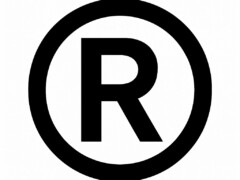Prop 65 litigation defense can be expensive, time-consuming, and high stakes. But sometimes, fighting is the right move. This article breaks down when to litigate, what the process looks like, and when the costs are worth it.
When to Defend a Prop 65 Case With Litigation
Under Prop 65, selling a product in California that contains a listed chemical

Sometimes, the situation calls for a manufacturer to burn through the cash for the sake of Prop 65 litigation defense
without a warning is a violation. For every product sold that violates the law, the statute allows penalties of up to $2,500 per day, per exposure. If a product sells in high volumes, the penalty calculation can quickly skyrocket. Multiplying a large product volume by the potential penalty may suddenly make the expense of litigation a business necessity. A vigorous defense may be used to leverage a more favorable settlement. A successful and vigorous defense may reduce or eliminate liability entirely!
What Does Prop 65 Litigation Look Like?
Prop 65 litigation defense is complicated. To simplify the issue, it is helpful to break down expenses into two groups: Attorney Fees and Expert Fees.
Attorney Fees During the Lengthy Legal Process and Timelines.
California motion practice is resource-intensive. Motion practice requires hundreds or even thousands of hours of attorney time. Resources are not only monetary – litigation also requires months or years of a food business’s attention and stress. Here is a real down and dirty timeline for a typical Prop 65 case in California:
- 60-Day Notice Filed: Triggers the enforcement process (Cal. Health & Safety Code § 25249.7(d)(1))
- Complaint filed: Initiates the lawsuit (Cal. Code Civ. Proc. § 335.1)
- Answer due: Within 30 days (Cal. Code Civ. Proc. § 412.20)
- Case Management Conference: Occurs within 180 days (CRC 3.722)
- Discovery phase: Depositions, interrogatories, document production (Cal. Code Civ. Proc. §§ 2016.010 et seq.)
- Expert disclosures: Typically 50 days before trial (Cal. Code Civ. Proc. § 2034.260)
- Motions in limine and summary judgment: Heard in the weeks before trial (Cal. Code Civ. Proc. §§ 437c, 402)
- Trial: Often 12–18 months after filing
Expert Fees
You do not defend a Proposition 65 case in litigation without extensively deploying experts. Toxicologists, chemists, supply chain analysts, testing labs, and regulatory specialists help establish that exposure levels fall below the No Significant Risk Level (NSRL) or Maximum Allowable Dose Level (MADL).
Expert testimony is even more critical when asserting the naturally occurring chemical exemption. Asserting the naturally occurring chemical exemption under Proposition 65 is one of the most scientifically demanding and expensive strategies available to a defendant. California Code of Regulations, Title 27, § 25501(a) requires a manufacturer to prove that the listed chemical—typically a heavy metal like arsenic, lead, or cadmium—was not introduced or increased through any human activity. This is an incredibly high legal standard and the burden of proof is on the manufacturer.
To meet it, the manufacturer must evaluate the entire supply and production chain. Experts analyze soil composition at the point of cultivation. They test irrigation sources. They pore over fertilizers and pesticides to detect chemical and heavy metal residues. Transport containers, storage vessels, and processing equipment must be evaluated for contamination risk. Even packaging materials must be tested to confirm that no migration or surface transfer occurred during distribution. Every input, every action, every potential human contribution must be ruled out by process of elimination.
Making the Judgment Call
Every Prop 65 litigation strategy must begin with a clear-eyed assessment of cost, risk, and outcome. Experienced counsel brings more than legal knowledge—they offer context drawn from both settlement and trial outcomes. That insight is essential when helping manufacturers evaluate whether to fight or settle.
The response strategy depends on the client’s risk tolerance, budget, and long-term goals. Litigation may cost hundreds of thousands of dollars, but so can a statutory penalty calculated at $2,500 per day, per unit sold. Our attorneys help food manufacturers make that judgment call with clarity, precision, and deep experience in Prop 65 litigation strategy.
In this series, we’ll detail other critical aspects of Prop 65. Click below for the final article in the series:
Our subscription service
Clients realize the greatest value out of our services when they stack them together comprehensively. Our subscription-based service plans enable our clients to weave our services into the fabric of their businesses at affordable and predictable rates.
















